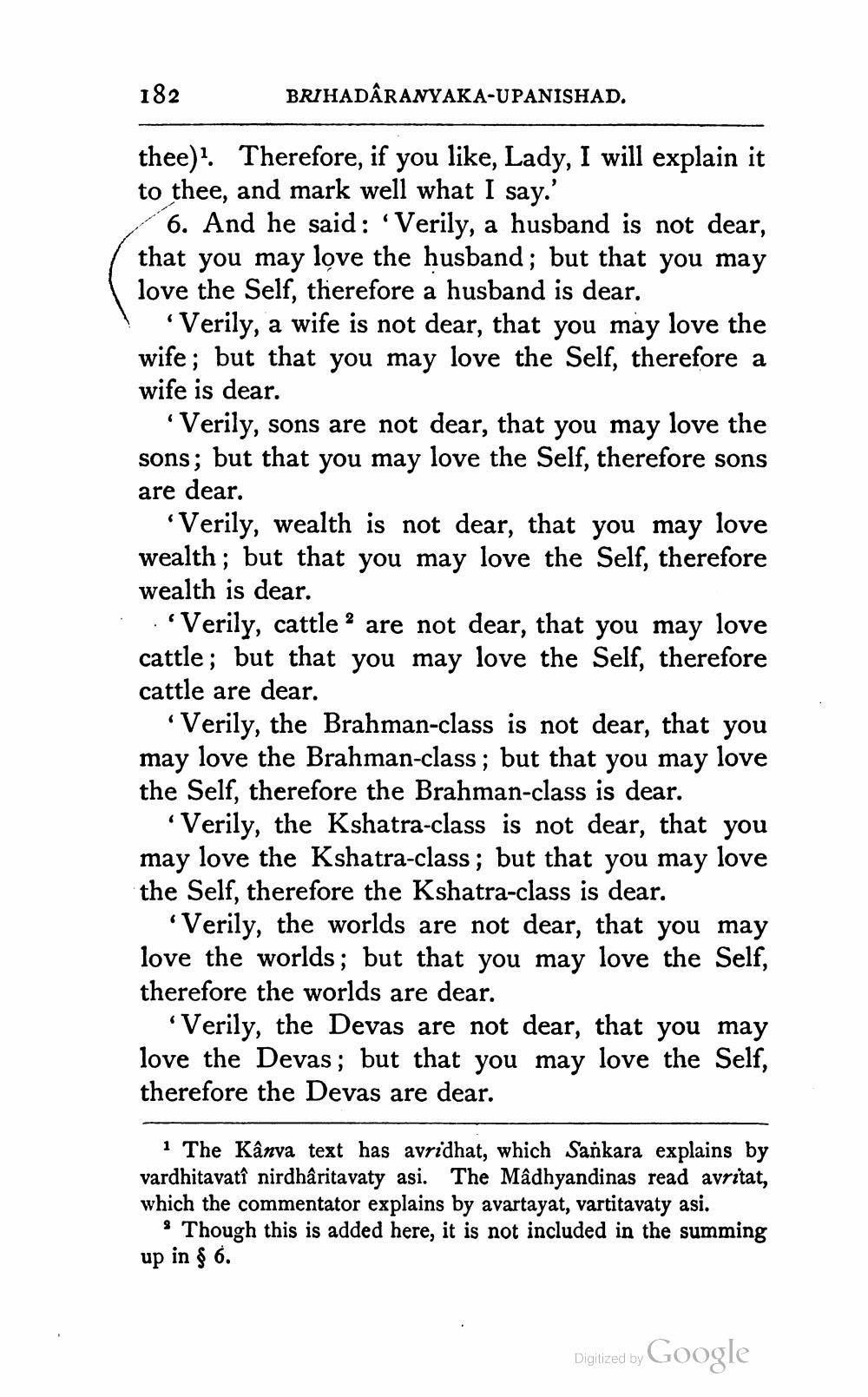________________
182
BRIHADARANYAKA-UPANISHAD.
thee)?. Therefore, if you like, Lady, I will explain it to thee, and mark well what I say.'
6. And he said: 'Verily, a husband is not dear, that you may love the husband; but that you may love the Self, therefore a husband is dear.
Verily, a wife is not dear, that you may love the wife; but that you may love the Self, therefore a wife is dear.
Verily, sons are not dear, that you may love the sons; but that you may love the Self, therefore sons are dear.
Verily, wealth is not dear, that you may love wealth ; but that you may love the Self, therefore wealth is dear.
. Verily, cattle ? are not dear, that you may love cattle; but that you may love the Self, therefore cattle are dear.
Verily, the Brahman-class is not dear, that you may love the Brahman-class; but that you may love the Self, therefore the Brahman-class is dear.
Verily, the Kshatra-class is not dear, that you may love the Kshatra-class; but that you may love the Self, therefore the Kshatra-class is dear.
Verily, the worlds are not dear, that you may love the worlds; but that you may love the Self, therefore the worlds are dear.
Verily, the Devas are not dear, that you may love the Devas; but that you may love the Self, therefore the Devas are dear.
1 The Kânva text has avridhat, which Sankara explains by vardhitavatî nirdharitavaty asi. The Mâdhyandinas read avritat, which the commentator explains by avartayat, vartitavaty asi.
* Though this is added here, it is not included in the summing up in § 6.
Digitized by Google




